Fox News Flash top headlines for February 21
Fox News Flash top headlines are here. Check out what's clicking on Foxnews.com.
"For deeply sourced, relentlessly reported coverage in the public interest," the citation from the Pulitzer Prize board begins, "that dramatically furthered the nation’s understanding of Russian interference in the 2016 presidential election and its connections to the Trump campaign, the president-elect’s transition team and his eventual administration."
Except the journalism that the Pulitzers honored — a 2018 National Reporting prize shared by The Washington Post and The New York Times for reporting on Russiagate — did no such thing.
WILL NEW YORK TIMES, WASHINGTON POST RETURN PULITZER FOR MISLEADING RUSSIA COLLUSION STORIES?
It led to a dramatic misunderstanding, suggesting that Donald Trump colluded with Vladimir Putin to help sway the 2016 election — a grand conspiracy we now know never existed.
Oh, it was "deeply sourced," in that deep-state Democratic bureaucrats, furious that Trump had won the White House, were falling over themselves to talk anonymously to reporters.
And it was "relentlessly reported," or at least just relentless, as the newspapers were obsessed with taking down the Trump administration.
Yet reading these pieces four years later, one is struck not only by how irrelevant they are, but how shlocky — tinged with a McCarthyist alarmism of a red under every bed. Two major newspapers that hold themselves up as the pinnacle of press freedom, the "truth dies in darkness" brigade and all that, pushed a conspiracy theory.
As a lesson in mass delusion, it’s worth going through the 20 stories that make up the Post and the Times’ award-winning series to show just how damaging they were: to the truth, to the newspapers’ reputations — and to America itself.
The Flynn saga
The first story in the contest entry is dated Feb. 9, 2017, from The Washington Post: "Officials say Flynn discussed sanctions."

Former Trump national security adviser Michael Flynn leaves the federal courthouse in Washington on July 10, 2018. (AP Photo/Manuel Balce Ceneta/File)
Michael Flynn, who was the incoming national security adviser, communicated with Russian Ambassador Sergey Kislyak during the transition period between the election and the inauguration.
Two major newspapers that hold themselves up as the pinnacle of press freedom, the "truth dies in darkness" brigade and all that, pushed a conspiracy theory.
President Barack Obama had sanctioned Russia for hacking — particularly accessing e-mails from the Democratic National Committee. Flynn had asked for Kislyak not to overreact, because the incoming administration had hoped for a "reset" of Russian relations (much as Obama had hoped for years earlier).
The Post does much hand-wringing over whether Flynn actually did anything wrong here. The story floats the Logan Act — "the law against US citizens interfering in foreign diplomacy" — but note it’s rarely enforced and, anyway, this is going to be Flynn’s job in just a couple months.
In fact, Michael McFaul, who served as U.S. ambassador to Russia during the Obama administration, defends the practice, saying he had Moscow meetings "in the weeks leading up to Obama’s 2008 election win."
Hmm. Of course, that’s Paragraph 17, after Paragraph 2 said the communication was "interpreted by some senior US officials as inappropriate and potentially illegal."
Those mysterious "some" are never named. An on-the-record rebuttal from a senior Obama official is treated less seriously than anonymous political enemies.

Michael McFaul, former U.S. ambassador to Russia, who served from 2012 to 2014.
In this witch-hunt atmosphere, Flynn is accused of lying to FBI officials and Vice President Mike Pence, and he resigns, thinking that might end this whole distraction. But, of course, it doesn’t — Flynn is hounded for years until Trump pardons him in November 2021.
A total of three of the 20 articles in the Pulitzer package are about Flynn, but what did we learn that broadened our understanding? Flynn told the Russian ambassador exactly what Trump was saying to Russia publicly: He wasn’t interested in escalating tensions between the two countries.
Russia, Russia, Russia
For a while there, if any member of Trump’s orbit ate borscht, it was front-page news, and a few are included in the entry.
"Sessions spoke twice to Russian envoy," the Post reports on March 2, 2017. "Undisclosed On Forms, Kushner Met 2 Russians," the Times says on April 7 of that year.
Good lord! Was it a notorious scheme to hack the election?
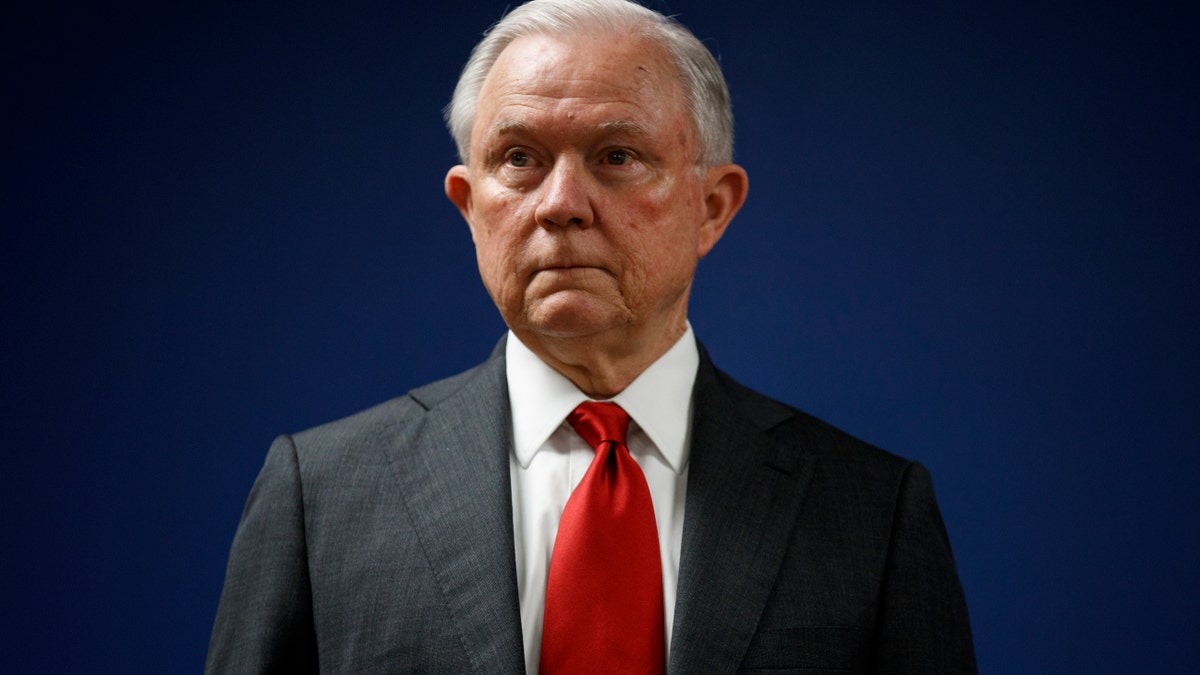
Attorney General Jeff Sessions pauses during a news conference at the U.S. Attorney's Office for the District of Columbia on Oct. 15, 2018. (AP Photo/Carolyn Kaster, File)
Well, no, Jeff Sessions was a member of the Senate Armed Services Committee when he met with the Russian ambassador. Jared Kushner hosted the Russian ambassador and the head of a Russian bank one month before Trump would take office. These officials wanted what they always want, whether it’s Democrats or Republicans — to push their interests in front of the people in power. Kushner and Sessions met with officials from plenty of other countries, but only Russia warrants a mention.
The tower meeting
The subject of so many Rachel Maddow monologues was the infamous Trump Tower meeting between some Russians and members of the Trump family.
Donald Trump Jr. arranged the meeting, enticed by what a Russian lawyer promised was inside information on Hillary Clinton. Three stories in the Pulitzer pack cover this, starting with "Russian Dirt on Clinton? ‘I Love It,’ Donald Trump Jr. Said."
Trump Jr. was catfished. The lawyer had no dirt, she just wanted to lobby for the repeal of the Magnitsky Act, a US law that allows for the sanctioning of individual Russians.
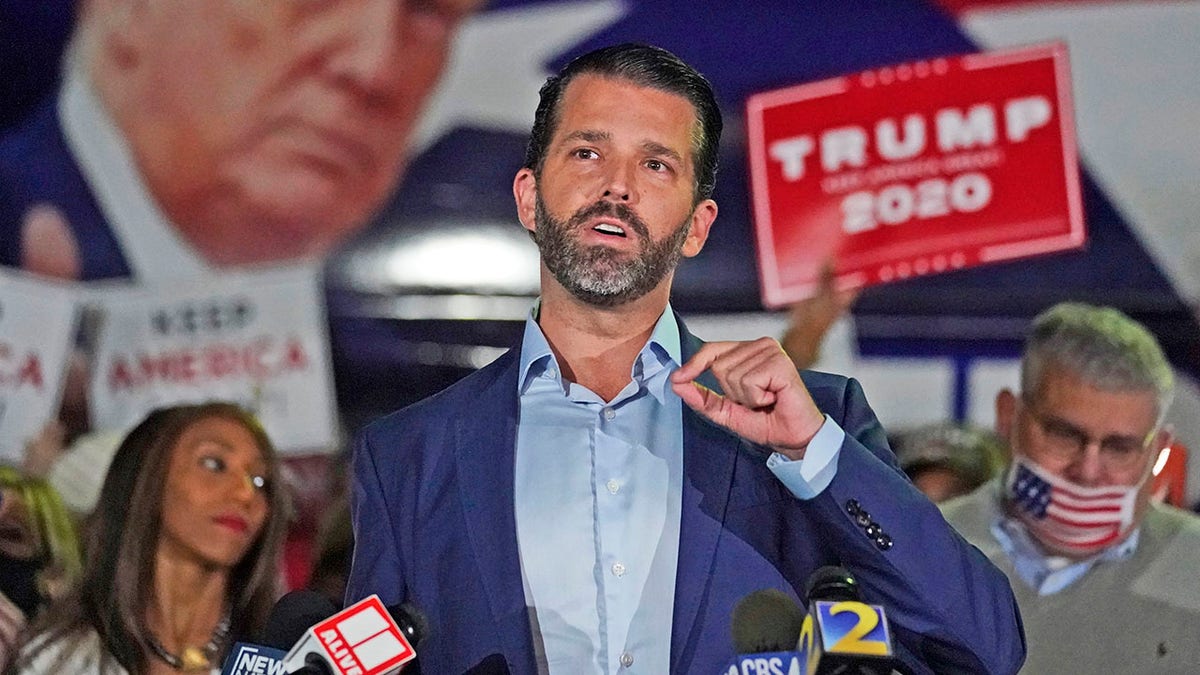
Donald Trump Jr. gestures during a news conference at Georgia Republican Party headquarters on Nov. 5, 2020 in Atlanta. (AP Photo/John Bazemore)
The Times gives us every cough and spit of the meeting, and an account about how Trump Sr. wrote his son’s press statement. But it never — and still hasn’t — reported that the meeting was anything but what Trump Jr. said it was. There was no collusion.
The dossier
Much of what drove the "narrative" that Trump was a Russian agent was a Clinton campaign-funded dossier by Christopher Steele that we now know was a collection of rumors, innuendos and lies.
The Pulitzer entry at first tries to pump up the dossier as a road map to a federal investigation.
On March 1, 2017, The Washington Post writes: "FBI was to pay author of Trump dossier: Arrangement fell apart but shows bureau found his inquiry credible."
The Post never quotes anyone saying the dossier is credible. It hardly quotes anyone by name.
Of course, we now know that the FBI couldn’t stand up anything Steele said. FBI agent Peter Strzok, for instance, wrote that "recent interviews and investigation, however, reveal Steele may not be in a position to judge the reliability of his subsource network."
By the end of 2017, when it’s obvious nothing in the dossier is true, the Times helps the intelligence community cover its tracks.
On Dec. 31, 2017, in the last story in the Pulitzer entry, the Times claims, "Unlikely Source Propelled Russian Meddling Inquiry," stating it was George Papadopoulos, not the dossier, that fueled the FBI investigation.
Papadopoulos was a minor adviser to the Trump campaign when he met with a mysterious Maltese academic, Joseph Mifsud. Mifsud claimed to Papadopoulos that Russia had Hillary Clinton’s e-mails. Papadopoulos later says he believes Mifsud was a setup, and FBI Director James Comey agrees, calling him a "Russian agent."
In May 2016, Papadopoulos goes drinking with Alexander Downer, Australia’s top diplomat in Britain, and repeats the gossip: Russia has Clinton’s e-mails.
Papadopoulos doesn’t have the e-mails. He is not working to get the e-mails. But the Times claims that Downer tells American officials and "the revelation that a member of the Trump campaign may have had inside information about it were driving factors that led the FBI to open an investigation in July 2016 into Russia’s attempts to disrupt the election and whether any of President Trump’s associates conspired."
What is the Times’ source for this? It doesn’t say.
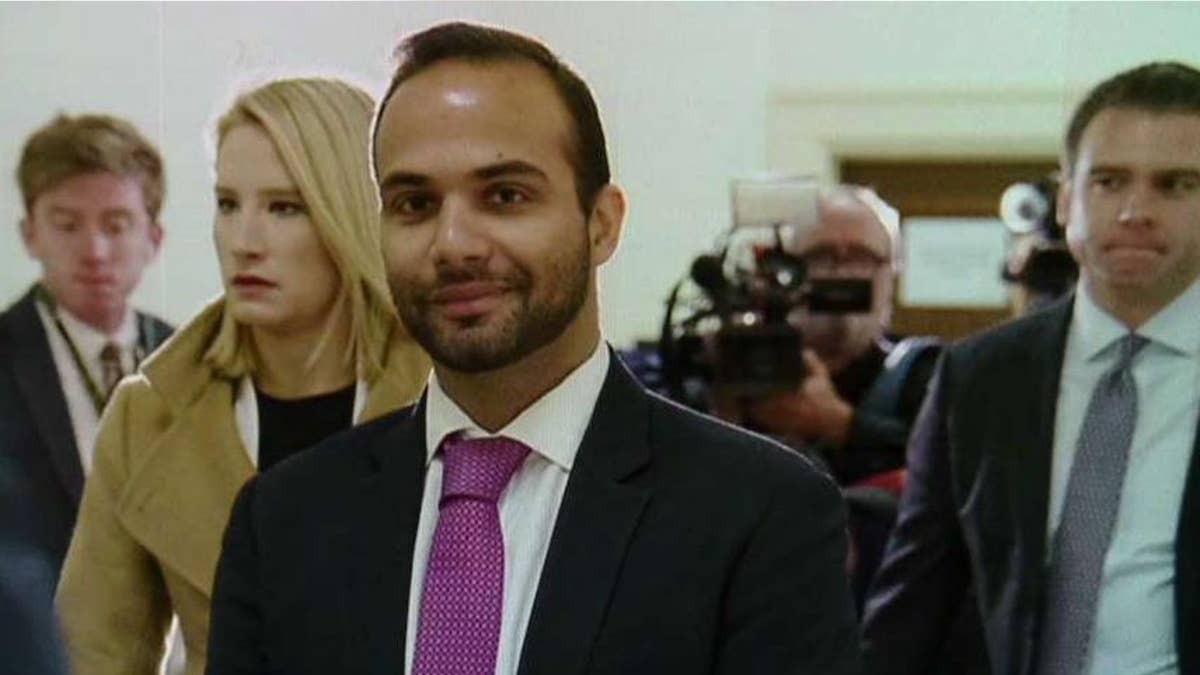
George Papadopoulos (File)
But even in this story, the dossier seems to loom larger than Papadopoulos’ drunken boasts. It says that "a team of FBI agents traveled to Europe to interview Mr. Steele in early October 2016," before the election, but doesn’t talk to Papadopoulos until January 2017. If he was the "impetus," why take so long?
Much like Flynn, Papadopoulos is never accused of or charged with conspiring with Russia. Instead, it’s lying to the FBI about his meeting with Mifsud. He serves 12 days in prison and is pardoned by Trump.
The thumbsuckers
The Times and Post both include one story of a type familiar to their readers. The 10,000-word pieces that make grand statements and boasts like, "The paper spoke to 117 people over the course of five months," to back up their assertions.
The Times gives us "The Fake Americans Russia Created to Influence the Election."
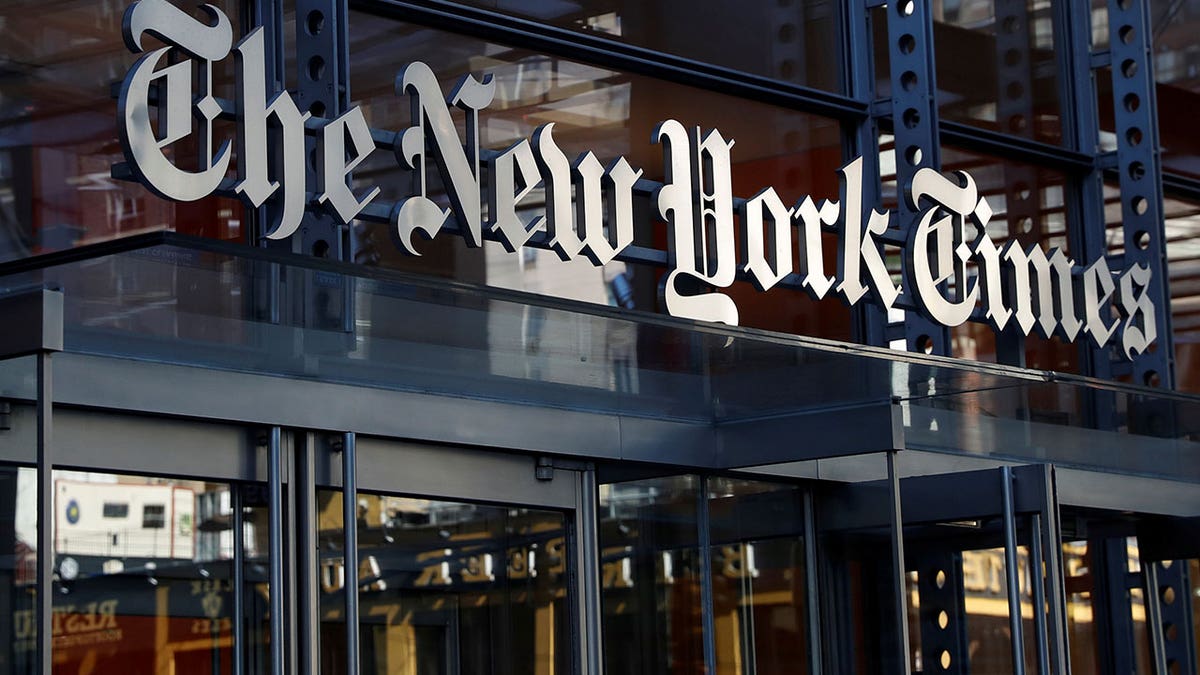
The New York Times building in Manhattan on Aug. 3, 2020. (Reuters/Shannon Stapleton/File Photo)
It details various Facebook pages and hashtags used to push propaganda. It lays out some examples, but strains to convince the reader that this was the key to Trump’s victory.
"Facebook officials disclosed that they had shut down several hundred accounts that they believe were created by a Russian company linked to the Kremlin and used to buy $100,000 in ads pushing divisive issues during and after the American election campaign," it says.
$100,000?? The Clinton and Trump campaigns spent a combined $81 million on Facebook ads.
The Times and Post treat these meetings with maximum raised eyebrows, even though, again, on-the-record sources say there is nothing unusual about them.
The Times itself comes to the rather weak conclusion that "the fakery may have added only modestly to the din of genuine American voices in the pre-election melee, but it helped fuel a fire of anger and suspicion in a polarized country."
Yet on Dec. 14, 2017, the Post counters with an opinion piece masquerading as news: "Doubting the intelligence, Trump pursues Putin and leaves a Russian threat unchecked."
"The result is without obvious parallel in US history," the Post claims, "a situation in which the personal insecurities of the president — and his refusal to accept what even many in his administration regard as objective reality — have impaired the government’s response to a national security threat."
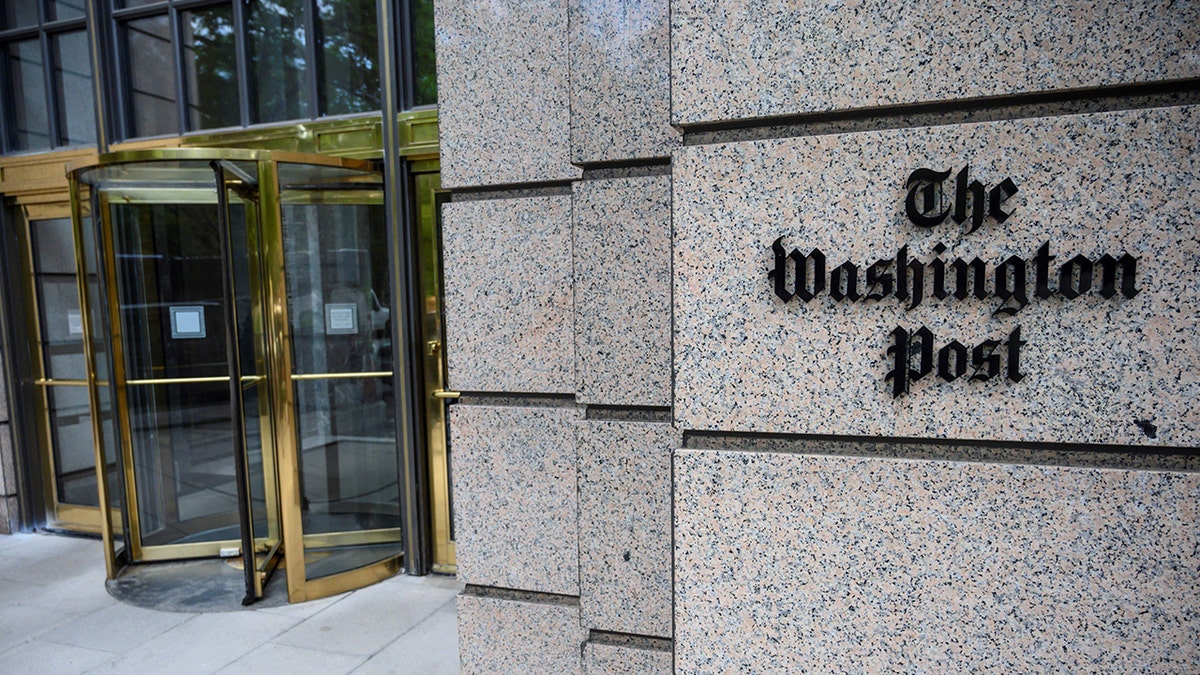
The Washington Post building in Washington, D.C. (Eric Baradat/AFP via Getty Images)
It’s hard to see how it was "impaired" when economic sanctions weren’t lifted. The government’s response was exactly the same when Putin invaded Crimea under Obama. The Post is just galled that Trump won’t publicly criticize Putin.
Then we get this doozy: "Trump’s stance on the election is part of a broader entanglement with Moscow that has defined the first year of his presidency."
Well, that’s the way the press defined it. Trump spent very little time on Russia, and spent most of his political capital on issues such as the southern border. It was the press’s obsession driving the story, not his actions toward Russia.
Finally, the key sentence: "But overall, US officials said, the Kremlin believes it got a staggering return on an operation that by some estimates cost less than $500,000 to execute and was organized around two main objectives — destabilizing US democracy and preventing Hillary Clinton, who is despised by Putin, from reaching the White House."
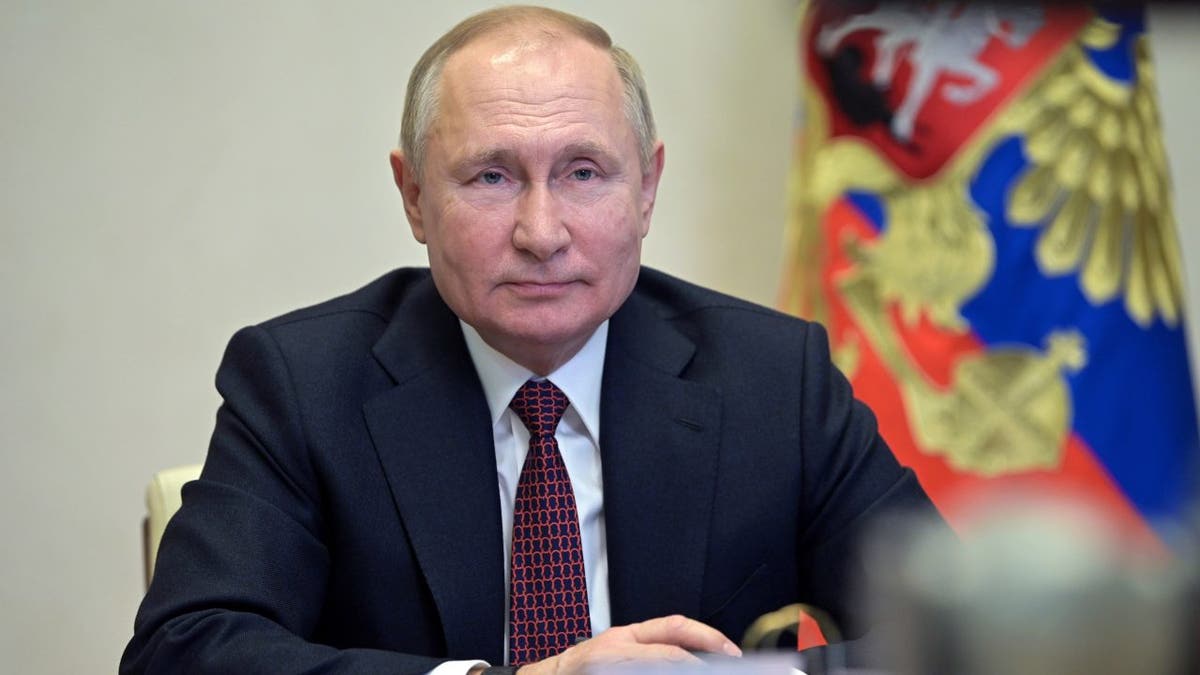
President Vladimir Putin in Moscow, Russia, on Jan. 25, 2022. (Sputnik, Kremlin Pool Photo via AP)
Side note here: People forget that the DNC hack was mostly about people other than Clinton. The one who paid the biggest price was Donna Brazile, because the e-mails revealed she was sharing upcoming debate questions with Clinton and lost her job over it.
Russia was almost certainly behind that hack. And they bought that whopping $100,000 worth of Facebook ads.
But did they "destabilize" U.S. democracy? There were no indications of vote fraud. There wasn’t a coup. It was destabilized, in the eyes of the Post, because Clinton didn’t win. And was that really "prevented" by Russia, or was it Hillary’s historic unpopularity and lack of interest in Wisconsin that lost the election?
The press has become so blinkered that it doesn’t see that this sentence isn’t factual — it’s a stunning assertion based on little but vague "US officials," the same people you probably saw railing against Trump on CNN.
The "coverup"
Donald Trump is about as subtle as an elephant walking through a store full of crockery. So it’s no surprise that stories like "President asked intelligence chiefs to deny collusion" (May 23, 2017, Post), "President Shifts Rationale For Firing FBI Director, Calling Him a ‘Showboat’ " (May 12, Times) "Trump Admitted Dismissal At FBI Eased Pressure" (May 20, Times) are part of the entry.
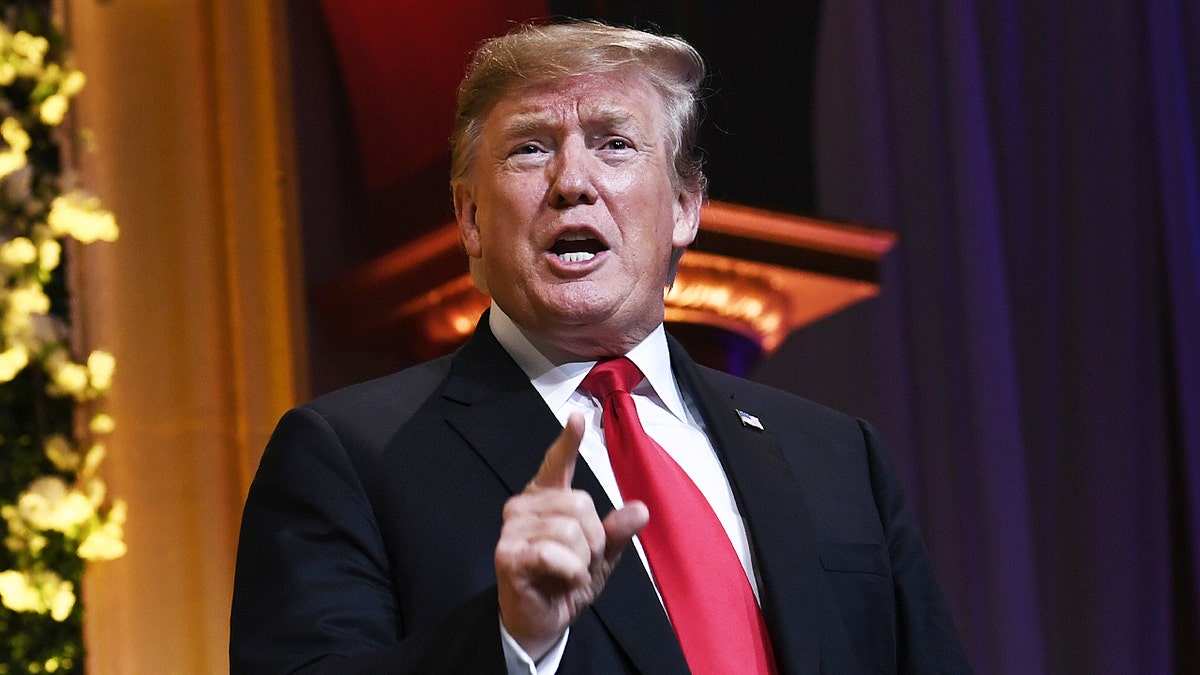
President Donald Trump arrives to speak at the National Republican Congressional Committee's annual spring dinner in Washington, April 2, 2019. (AP Photo/Susan Walsh)
But what do they prove? Comey admitted in congressional testimony that he told Trump he wasn’t under investigation. Trump wanted him to say it publicly; Comey refused.
Trump fires Comey, and yells at everyone investigating because he’s sick of the press claiming he won the election because of Russia.
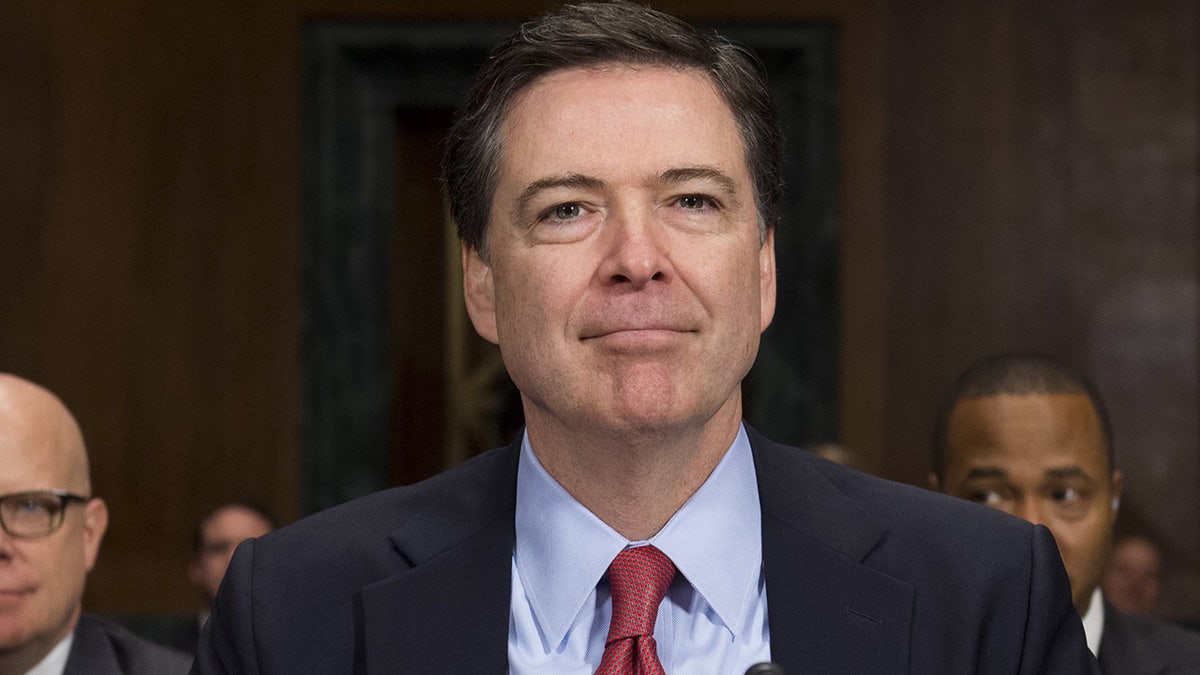
Former FBI Director James Comey (Getty Images)
CLICK HERE TO GET THE OPINION NEWSLETTER
It didn’t look good politically. But it was also a pretty lousy coverup, as an independent investigation was appointed. And that inquiry, by Robert Mueller, showed Trump wasn’t colluding with Russia. No investigation before or since by the press has shown the Trump campaign was involved in the DNC hack or knew it was going to happen. The reason for Trump’s behavior was obvious then and now: He was furious.
A whole lotta nothing
The Times and Post turned Russiagate into a soap opera, but for all the Sturm und Drang, the series didn’t prove anything.
The Pulitzer was awarded for "further[ing] . . . the understanding of Russian interference . . . [and] its connections to the Trump campaign, the president-elect’s transition team and his eventual administration."
But there is no connection made in any of these stories between interference and anyone in Trump’s orbit.
The papers chronicle Russia’s spending during the election, such as it was, then stitch together a collection of anecdotes about people in Trump’s orbit talking to Russians.
Yet no one claims Flynn, Sessions, Trump Jr., Kushner or Trump himself knew anything about Russian hacking or ad spending before it happened — and certainly weren’t involved in making it happen. Papadopoulos hears about the possibility that the Russians have Clinton’s e-mails, but isn’t involved.
The rest is stories about Trump railing against the press and officials who harp on Russia. These also offer no evidence of cooperation between Putin and Trump, and since not much changes between the two nations, no one says what "benefit" Putin gets from a Trump presidency.
Of course, the Mueller report, released in 2019, blew it all away. After a full investigation, there was no "collusion." All the smoke and mirrors used by the Times and Post and their anonymous briefers to turn ambassador meetings into Kremlin plots add up to nothing.
CLICK HERE TO GET THE FOX NEWS APP
Yet the damage had been done. The liberal media had "destabilized US democracy" more than Russia ever could, by feeding left-leaning Americans a constant, false narrative that their president was a sleeper agent. Whatever your feelings about Donald Trump, it should disturb you that political opponents and bureaucrats who hated him could so easily weaponize the press to undermine the government from within.
This Pulitzer Prize makes a mockery of the idea that journalism speaks truth to power, as it shows how the press was manipulated by the powerful. "Our republic and its press will rise or fall together," Joseph Pulitzer once said. For the sake of both, rescind this award given in his name.











































